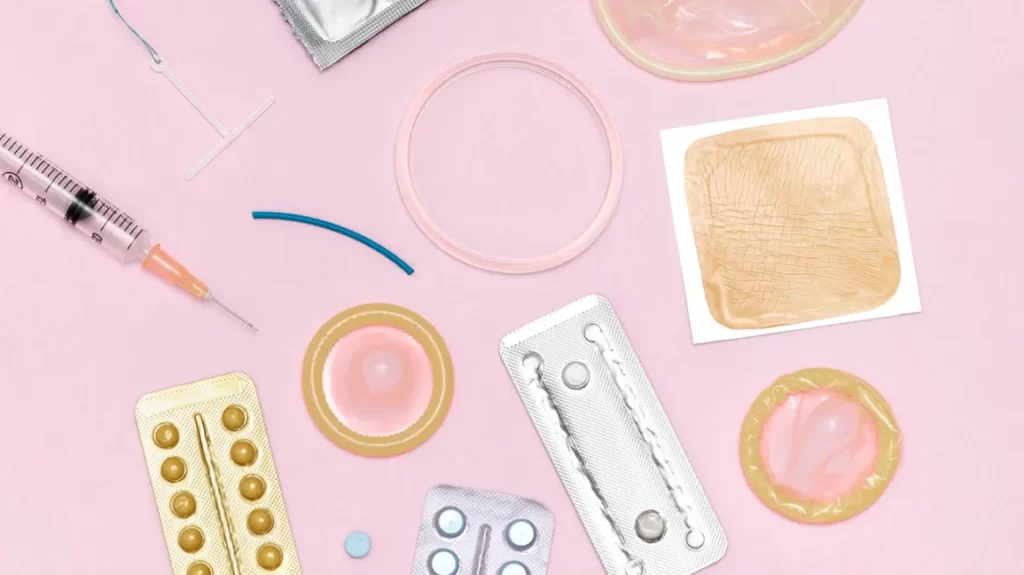
Recently, I had a very unpleasant experience with a contraceptive pill. It all began about five months ago. I had a delayed period; eventually, when it came, it was longer, heavier, and more painful than usual.
Ever since the unpleasant event, my cycle has been seen to be irregular, and sometimes with shorter periods, other times missed.
After a series of hormonal evaluations and analyses, it was discovered I had consumed more contraceptive pills than required, especially the pills not suitable for my body system.
Generally, When choosing which birth control method is suitable for you, It might interest you to know how it will affect your menstrual period as time goes on.
However, some contraceptive pills can help regulate the hormones, while others might lower estrogen levels and alter the cycle.
As I began my healing journey, I noticed that the pills might give some false early pregnancy symptoms such as spotting, nausea, fatigue, cramping, cravings, and mood swings. You’re even likely to have a fuller bust and gain weight. Some people lose weight tho.
Some birth control methods can safely suppress your period entirely. Some Research has suggested that the body can stay healthy without menstruating as often as it typically would.
How Birth Control Pills can affect the Menstrual Cycle
To prevent pregnancy, you can take the birth control pill every day. There are several pill varieties and dosage schedules. Depending on your medical history and personal preferences, your doctor could suggest one medication over another.
Combined Pills or “Combo Pills”
Progestin and estrogen are hormones found in the combo medication. These hormones function to prevent ovulation, make cervical mucus thicker, and thin the uterine lining.
Typically, combination pill packs of tablets contain either 24 days’ worth of active pills and 4 days’ worth of inactive pills, or 21 days’ worth of active pills and 7 days’ worth of inactive pills. By enabling you to have your period every month when you take the inactive tablets, this controls your menstrual cycle.
Premenstrual syndrome (PMS) and menstrual discomfort relief are two benefits of the combo pill, which can also lessen bleeding. Even while irregular bleeding and spotting between periods can happen to some people, they are more likely to have these side effects when taking the hormone pill, and they generally stop after the first few months.
The After Pill or Post Pill
The After pill also called the Post pill is one of the most commonly consumed contraceptive pills most people consume immediately or a few days after unprotected intercourse, This is because it’s easy to purchase over the counter and affordable.
You can use emergency contraception if you suspect that you may become pregnant without intending to do so. These tablets might still work up to five days after becoming pregnant.
The morning after pill/post pill is only permitted for urgent situations; it is not meant for daily usage. This medication prevents or postpones an egg’s release from the ovary. A fertilized egg’s ability to adhere to the uterus may also be hindered.
The two varieties of morning-after pills are ulipristal acetate (Ella) and levonorgestrel (Plan B and Next Choice).
The morning after pill’s most frequent adverse effect is an earlier or later-than-usual menstruation. In the event that your period is more than a few weeks overdue, you might wish to
The morning-after pill can also make your period:
- lighter
- heavier
- longer
- shorter
All of these irregularities in your period should go away by your next menstrual cycle.
Intrauterine device (IUD)
An IUD is a tiny device that is inserted into the uterus by a licensed physician. Based on the type, an IUD can prevent conception for up to twelve years. IUDs are a type of long-acting reversible contraception (LARC).
IUD made of copper
The copper IUD is marketed under the trade name Paraguard. Copper provides an unfavorable environment for sperm, preventing it from reaching and fertilizing the egg.
Because the copper IUD contains no hormones, you will continue to ovulate and get your period every month. In some situations, the copper IUD might cause the following negative effects:
1. more intense and persistent bleeding
2. more severe menstrual cramps
3. irregular spotting
Most individuals find that these adverse effects subside after the first few days.
Hormonal IUD
The hormonal IUD secretes the hormone progestin, which thins the uterine lining and thickens cervical mucus, preventing pregnancy by blocking sperm from entering the uterus.
Hormonal IUDs usually make periods lighter and reduce cramping and PMS. In some cases, a hormonal IUD can cause irregular periods and spotting, but these side effects usually fade over time. Some hormonal IUD users stop getting their period entirely.
Contraceptive Implant
The Nexplanon contraceptive implant is a tiny plastic rod that is inserted in the upper arm. It forces ovulation to cease by releasing progestin and thickening cervical mucus, which blocks sperm.
The contraceptive implant can help prevent pregnancy for up to three years, at which point it must be removed and replaced.
The implant’s impact on your menstruation might even be unpredictable. Unwanted spotting and mild bleeding are frequent adverse effects. The time between each phase also varies. Some implant users do not menstruate at all.
In certain circumstances, consumers notice heavier and more protracted bleeding. If this happens to you, contact your healthcare practitioner right away.
According to FDA research, about 10% of women who discontinue usage of the implant have done so because they dislike the change in their bleeding pattern.
The Birth Control Shot
The birth control shot (Depo-Provera) is an injection of the progestin hormone. It protects against pregnancy for approximately three months before you need to have another injection.
The injection prohibits pregnancies by preventing ovulation, weakening the uterine lining, thickening and lowering cervical mucus, and preventing sperm from entering the uterus.
The most frequent negative effects of taking the injection are changes in your menstrual cycle. In the beginning, your period will most likely become irregular, with unexpected bleeding and spotting. Most people’s periods will get lighter and less frequent as time passes.
Over half of women who use the birth control injection cease menstruating altogether after a year. This is typical, and periods normally resume once the injection is stopped.
In rare circumstances, bleeding may be more severe and protracted than normal.

What birth control methods will not tamper with your period?
Some birth control techniques are unlikely to have any effect on your menstruation. These are some examples:
- male condom
- female condom
- spermicide
- diaphragm
- contraceptive sponge
- cervical cap
To properly avoid pregnancy, you must adopt one of these approaches every time you have sex. It is also critical to use it appropriately.
These birth control techniques can be used with other contraceptives that regulate periods. Male and female condoms are the only types of birth control that successfully protect against sexually transmitted diseases (STIs).
Disclaimer: The above information published in this article is solely for informational and educational purposes only. The article written/published does not intend to diagnose, treat or cure any disease and should not be treated as medical advice. Seek the direction of your doctor before any consumption!
Many Thanks for Reading!






